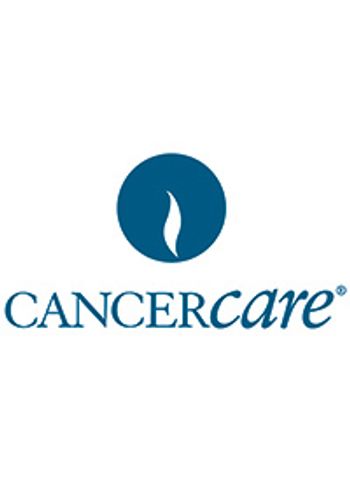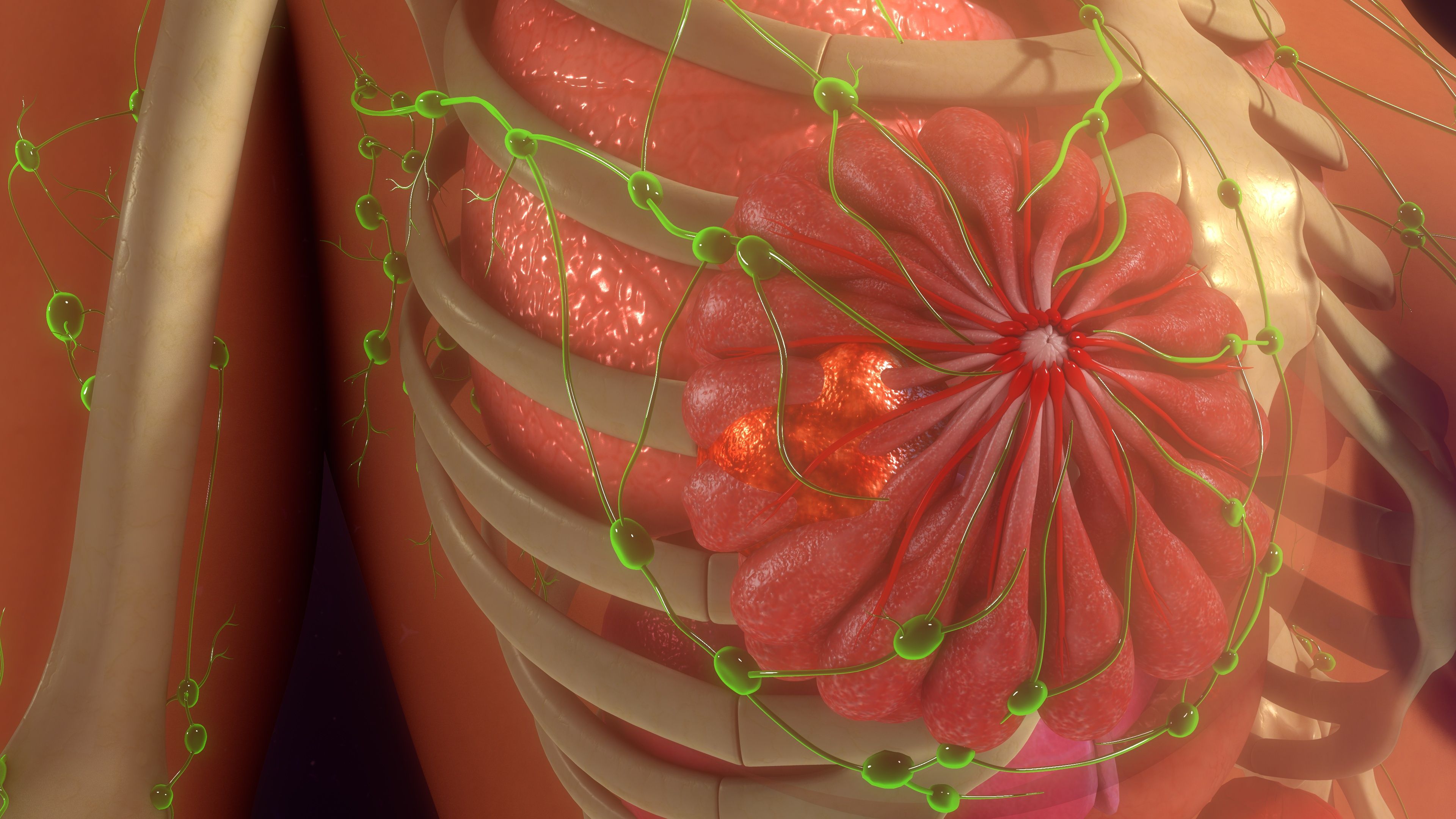
Breast Cancer
Latest News
Latest Videos

More News

Baseline fatigue levels, prior psychosocial history, and cancer treatment may all affect the fatigue trajectory in women with breast cancer.

Findings of an epidemiological study show that regular aspirin use could boost survival in older patients with breast and bladder cancers, but more research is still needed.

Twice-weekly text message reminders did not improve adherence to aromatase inhibitors (AIs) for postmenopausal patients with early-stage breast cancer; therefore, increasing the odds of long-term adherence for this population will require more personalized approaches, explained Julie Gralow, MD.

The FDA has granted a fast track designation to the investigational antibody-drug conjugate (ADC) ARX788 for use as a monotherapy in the treatment of patients with advanced or metastatic HER2-positive breast cancer who have previously received 1 or more HER2-targeted regimens in the metastatic setting.

Patients with early-stage HER2-positive breast cancer should be treated with neoadjuvant therapy rather than surgery to determine how they will respond to ado-trastuzumab emtansine (T-DM1; Kadcyla)in the adjuvant setting, according to Ian E. Krop, MD, PhD, who added that although residual disease may serve as a potential predictive biomarker for response to this approach, the hunt for effective molecular biomarkers continues.

Several novel chemoimmunotherapy combinations have risen to the forefront of treatment in triple-negative breast cancer.

The FDA has approved margetuximab-cmkb (Margenza) plus chemotherapy for use in adult patients with metastatic HER2-positive breast cancer who have previously received 2 or more anti-HER2 regimens, at least one of which was for metastatic disease.

Four oncology nurse practitioners sat down and discussed the recent developments in the treatment of HER2-positive breast cancer and how to manage this group of patients during a worldwide pandemic.

Gastrointestinal (GI) adverse events (AEs) that occurred in patients with metastatic breast cancer who were treated with oral paclitaxel and encequidar can be managed by the use of 5- HT3 inhibitors and early intervention with loperamide, according to research presented at the 2020 San Antonio Breast Cancer Symposium.

A poster presented at the 2020 San Antonio Breast Cancer Symposium found a trend towards less frequent care refusal when a safety net hospital introduced nurse breast navigators.

When administering oral therapies for HER2+ breast cancer, discuss adverse events and medication adherence.

Recent research highlighted the need for reliable information to address the educational and psychosocial needs of patients with newly diagnosed metastatic breast cancer.


Patients who experienced breakthrough CINV in their first chemotherapy cycle were more likely to have the adverse event in later cycles too, recent research found.

Patients from Asian countries with hormone receptor (HR)–positive, HER2-negative breast cancer may have a higher risk of disease recurrence than those from non-Asian countries, suggesting that this population may benefit from additional adjuvant treatment with abemaciclib (Verzenio).

The FDA granted an accelerated approval to pembrolizumab (Keytruda) plus chemotherapy for the treatment of patients with locally recurrent, unresectable or metastatic triple-negative breast cancer (TNBC) with PD-L1 expression is CPS ≥10, according to the agency.

A pharmacist provides an overview of new intravenous cancer therapies that were approved in 2020.

Beyond single-agent chemotherapy, few effective treatment options are available for metastatic triple-negative breast cancer (TNBC), according to Candace Mainor, MD, but several approaches comprised of immunotherapy, antibody-drug conjugates (ADCs), and PARP inhibitors are shifting standards of care and eliciting impressive response rates in heavily pretreated patients.

Oncology nurses are key players in promoting health heart practices after a patient finishes cancer treatment.

While COVID-19 continues to present much uncertainty for many people, those diagnosed with breast cancer are faced with unique challenges in navigating continued treatment.

Recent years have brought many changes to the treatment of patients with HER2-positive metastatic breast cancer.

Evaluating the benefits of the subQ vs IV formulation of the trastuzumab-pertuzumab combination for the management of HER2+ breast cancer and examining the potential use of at-home administration.

Makers of breast implants should supplement their labeling to include a boxed warning about health problems that can arise from the devices, along with a patient decision checklist that highlights those concerns, according to final guidance issued today by the Food and Drug Administration.


It is crucial that oncology nurses have open lines of communications with their patients when it comes to adverse events.

































































































